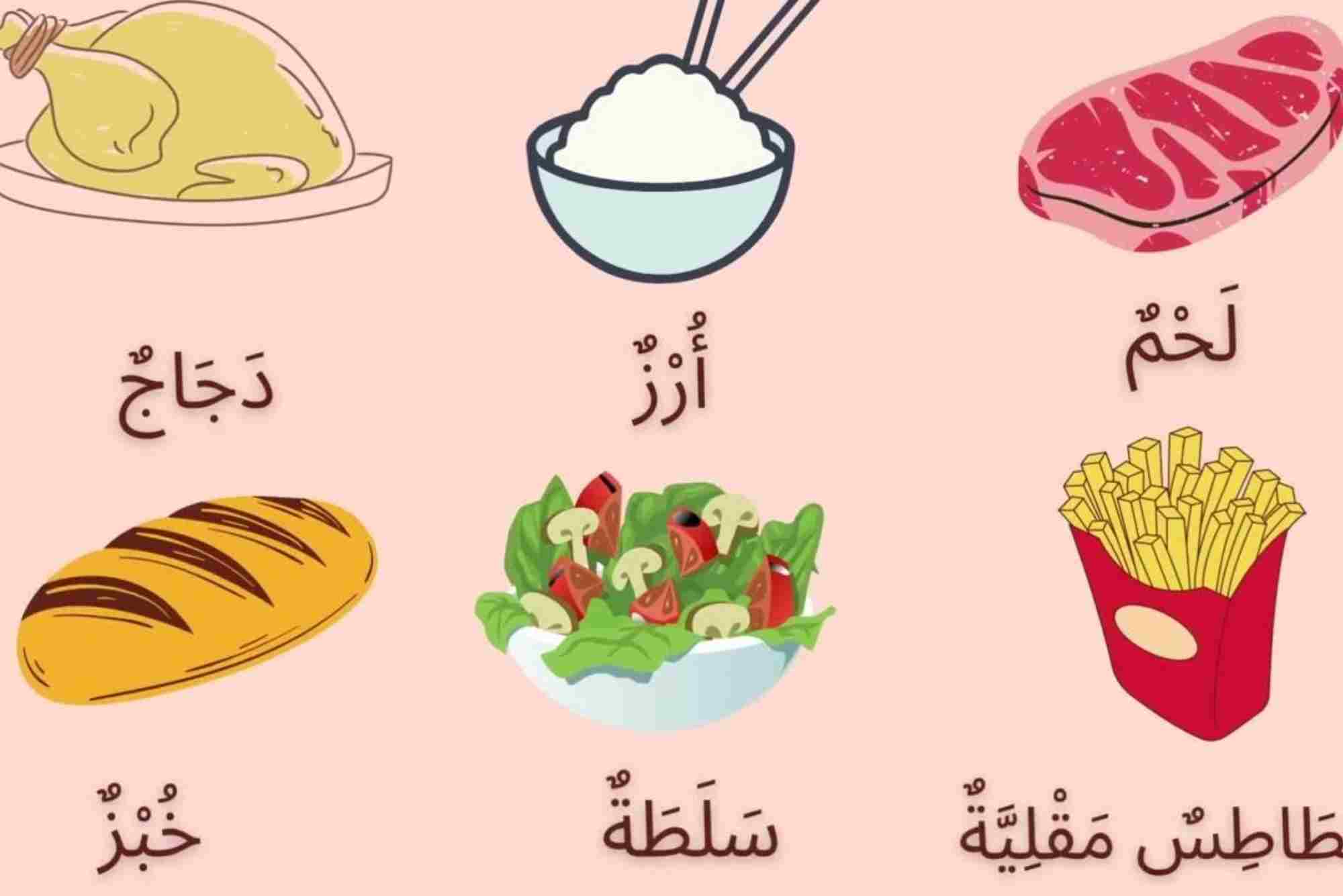Common Unhealthy Foods in Arabic – Translations & Warnings
Understanding the names of unhealthy food in Arabic can help you make better choices, especially if you’re living in or visiting an Arabic-speaking country. From sugary drinks to processed meats, unhealthy foods are everywhere. But when language becomes a barrier, identifying these items becomes a challenge.
This guide explores the most common unhealthy food in Arabic, their translations, and the health risks associated with each. Whether you’re a tourist, a resident, or just learning Arabic, this article is your go-to resource.
Why Learn About Unhealthy Food in Arabic?
Knowing the Arabic terms for unhealthy food helps in several ways. It supports better food choices when reading menus, grocery labels, or street signs. More importantly, it protects your health in environments where diet-related illnesses are on the rise.
In Arabic-speaking countries, fast food and packaged snacks are increasingly common. Unfortunately, these often include high levels of sugar, salt, and unhealthy fats—contributing to conditions like diabetes, obesity, and heart disease.
So, what exactly is considered unhealthy food in Arabic-speaking regions?
Popular Unhealthy Foods in Arabic with Translations
Let’s take a closer look at common junk and processed foods, their Arabic equivalents, and why they’re harmful.
Fried Foods – الأطعمة المقلية (Al-At’ima Al-Maqliya)
These include items like French fries, fried chicken, and fried bread. While delicious, they are high in trans fats and calories. Regular consumption can increase your risk of heart problems and weight gain.
Sugary Drinks – المشروبات السكرية (Al-Mashroobat Al-Sukariya)
Sodas, sweetened juices, and energy drinks fall under this category. These drinks spike blood sugar levels and offer little to no nutritional value.
Processed Meats – اللحوم المصنعة (Al-Lahoom Al-Mosana’a)
Examples include sausages, bacon, and cold cuts. They often contain preservatives like nitrates, which have been linked to cancer and high blood pressure.
Packaged Snacks – الوجبات الخفيفة المعلبة (Al-Wajbat Al-Khafeefa Al-Mu’allaba)
Chips, cookies, and candy are full of additives and artificial flavors. While convenient, they are nutritionally poor and contribute to overeating.
Fast Food – الوجبات السريعة (Al-Wajbat Al-Saree’a)
Think burgers, pizza, and fried chicken sandwiches. These meals are often rich in saturated fats, sodium, and processed carbs, making them a poor choice for long-term health.
Pastries & Desserts – المعجنات والحلويات (Al-Mu’ajjanat Wal-Halawiyat)
From donuts to Arabic sweets like baklava (بقلاوة), they are high in sugar and butter. Occasional indulgence is fine, but frequent consumption can increase diabetes risk.
Health Risks of Consuming Unhealthy Food
Eating unhealthy food in Arabic-speaking countries—or anywhere—comes with serious health implications.
Weight Gain and Obesity
Foods high in calories and low in nutrients are a fast track to gaining weight. Obesity is a growing problem in the Middle East due to Westernized diets.
Type 2 Diabetes
Sugary and processed foods directly impact insulin resistance, a leading cause of diabetes. According to WHO, diabetes cases in the Arab world are rising sharply.
Cardiovascular Diseases
High cholesterol, increased blood pressure, and clogged arteries are just a few outcomes of regularly consuming processed and fried foods.
Poor Mental Health
Emerging studies suggest that diet affects not just the body but also the mind. Diets rich in junk food are linked to depression and anxiety.
Tips for Avoiding Unhealthy Food in Arabic-Speaking Countries
Avoiding unhealthy food is easier when you can identify it. Here’s how to stay healthy while navigating Arabic food culture.
Read Labels Carefully
Learn key Arabic terms like سكر (sugar), دهون مشبعة (saturated fat), and صوديوم (sodium). These are often listed on food packaging.
Choose Local & Fresh
Arabic cuisine offers plenty of healthy options such as الحمص (hummus), السلطة (salad), and الفول (fava beans). Choose fresh and traditional over processed and Westernized options.
Cook at Home
If you’re living in the region, home cooking gives you full control over ingredients and methods, avoiding unnecessary fats and sugars.
Frequently Asked Questions (FAQs)
What is unhealthy food in Arabic?
In Arabic, unhealthy food is referred to as الطعام غير الصحي (Al-Ta’am Ghayr Al-Sihhi). It includes fried, sugary, and processed items that harm health.
What are examples of junk food in Arabic?
Junk food examples include:
- Burgers: برجر
- Pizza: بيتزا
- Chips: رقائق البطاطس
- Sweets: حلويات
These are popular but lack essential nutrients.
Is shawarma unhealthy?
شاورما (Shawarma) can be both healthy and unhealthy depending on how it’s made. When loaded with sauces and served with fries, it becomes high in fat and calories.
How do you say fast food in Arabic?
Fast food is translated as الوجبات السريعة (Al-Wajbat Al-Saree’a). It refers to quick, often processed meals that are generally unhealthy.
What Arabic snacks should I avoid?
Avoid snacks labeled as:
- مقلي (fried)
- محلى (sweetened)
- مصنع (processed)
Instead, opt for fresh fruits and nuts when possible.
The Rise of Unhealthy Food in the Arab World
Modern lifestyles in the Arab world have shifted dramatically. Urbanization, busy schedules, and global food chains have altered traditional diets. Today, you’ll find fast food restaurants in every city, from Dubai to Cairo.
This dietary shift is not without consequences. According to the Global Nutrition Report, countries like Saudi Arabia, Kuwait, and the UAE have some of the highest obesity rates in the world.
Understanding the cultural and linguistic aspects of food can help reverse this trend. Whether you’re shopping, dining out, or cooking, knowing the Arabic terms can guide you toward healthier decisions.
Choose Health, Learn the Language
Recognizing unhealthy food in Arabic empowers you to take charge of your health, especially in environments where tempting but harmful food options are everywhere. From learning basic Arabic food vocabulary to making mindful eating choices, small steps can lead to big health improvements.
If you live in or travel to an Arabic-speaking country, commit to learning food-related terms. Not only will this improve your language skills, but it will also support your health goals.
Want to make better food choices in Arabic-speaking countries? Bookmark this guide, and share it with friends and family. Better yet, start learning Arabic food vocabulary today—you’ll thank yourself later!




